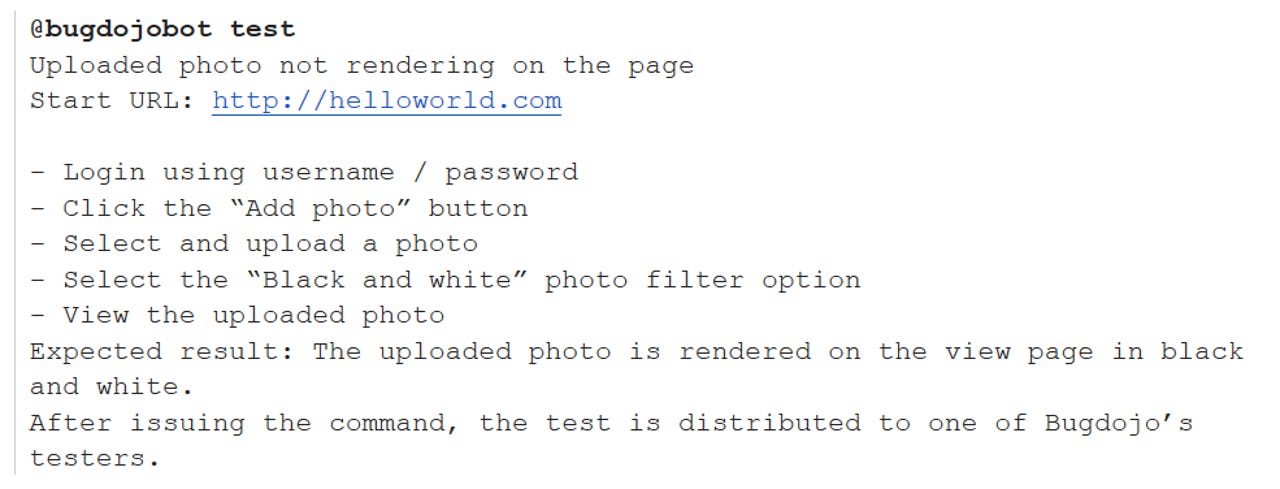Melbourne startup Bugdojo launches bot-powered QA tool

A lot of startups and mid-size development teams skip through quality assurance (QA) and software testing in favour of shipping new features and releases as quickly as possible, according to Australian startup Bugdojo.
This is because QA and software testing is seen as time-consuming and expensive, the startup said.
Founded by Melbourne entrepreneur Ash Conway, Bugdojo wanted to address these inconveniences by creating a QA tool that provides development teams access to software testers on-demand by using bot commands as they're building code.
Conway told ZDNet that while it's possible for companies to hire offshore testers cost-effectively, the testing is "far from constant".
"Traditionally, QA resources are most needed towards the end of a release cycle, and are often a bottleneck in the process, requiring a huge backlog of testing to be cleared before release," Conway said.
"Bugdojo solves this problem by making professional QA and testing resources available to development teams on demand. When it comes time to test and QA a release, developers can use Bugdojo's army of testers to continually test throughout the development process, or to clear a backlog in minutes or hours, instead of days or weeks."
Developers interact with a bot inside issue tickets in GitHub or Bitbucket using commands such as "@bugdojo test" or "@bugdojo reject" to start and manage testing. Bugdojo replies to the GitHub or Bitbucket issue with the result of the test, comments made by the tester, and a screen capture video of the testing process.
Conway said the advantage of having a bot interface is that it integrates "seamlessly" into existing software development workflows.
"We believe that tools like Bugdojo should enable teams to get more done within their existing workflow, without adding additional layers of complexity. Every time a developer has to switch context to a new app or log in to a new tool, that's a distraction from their workflow," Conway added.
An example of a simple test for a new web app feature.
Conway said that while other QA-as-a-Service platforms use "crowdsourced" workers from online task marketplaces such as Amazon's Mechanical Turk, software testers that apply to be part of Bugdojo are graded against its existing pool of testers through machine learning technology before they have access to clients' tests.
Conway, who also founded Bugwolf, a user acceptance testing platform that applies gamification techniques, said machine learning technology eliminates the expense of managing false positives or the need for a third-party to assess the applicant's skills.
Bugdojo charges $500 per 25 tests, compared with hiring a full-time QA engineer that can cost a company between $80,000 and $150,000 per year.
The testers, of which there are "several thousands", are paid based on the number of pass and failed tests accepted by clients, Bugdojo said.
Bugdojo currently supports testing of websites and web-based applications, but will be moving into mobile apps in the future.
Updated 9.15am AEST 21 April 2017: Quote attribution corrected.
